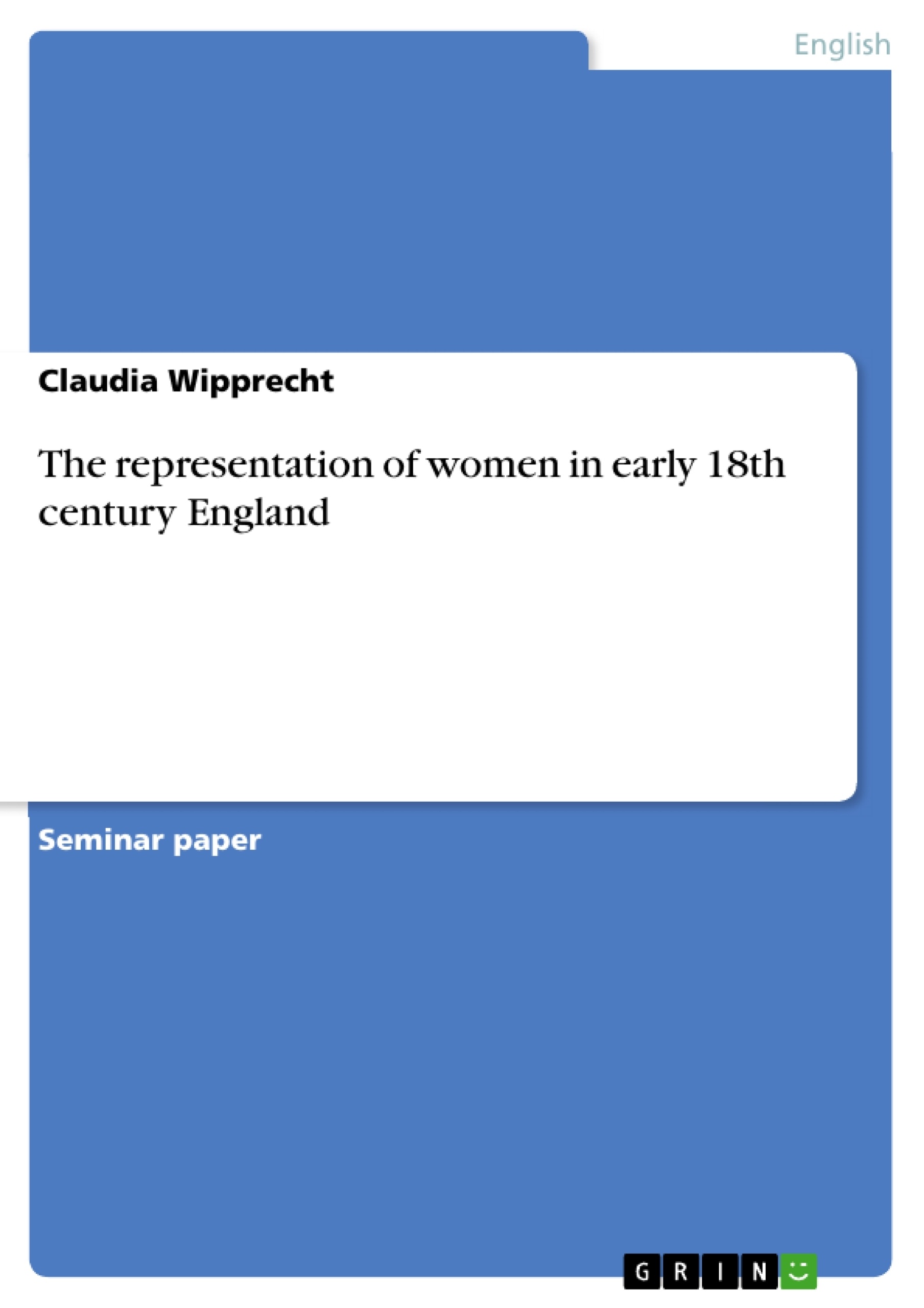I) The first half of the 18th century
The important essay by John Locke Essay concerning human understanding (1690) made an exceptionally high impact in the 18th century. His rejection of Descartes’ ‘innate ideas’ constituted the basis for the discussion about abilities and rights of women in the 18th century. A.R. Humphreys noted:
“Throughout the century a skirmish went on between conservatives who argued for
the grand principle of subordination and progressives, who, guided by the clear
light of reason, contended for woman’s rational and social equality.”1
The married woman was considered to have neither rights nor property due to the fact that with the marriage all her property exchanged automatically to her husband. The ideal of marriage in the 18th century is described by W.L. Blease:
“ … the ideal of marriage had been brought to its lowest possible level […] it
emphasized the sexual side of the connection, and almost entirely disregarded the
spiritual.”2
The average age for marrying rested with 17 years, which was the reason that most young women could not satisfy their positions as mothers. The only profession women could have was that of a wife and mother; as Blease said “A respectable woman was nothing but the potential mother of children.”3. However, there was the problem of a surplus of women. Some women had the possibility to teach children, which was not very high regarded. Most women, however, had only the possibility to prostitute themselves which was a crucial problem of this times (Einhoff, 1980: 35).
Terms like ‘the fair sex’, ‘the soft sex’ and ‘the gentle sex’ designated the relationship of the sexes; the weak and tender woman needs to be protected by the strong man, which disguised the reality of absolute subordination of most women. It is also remarkable that there were only a few legal divorces which can be interpreted as a sign for the tacit sanction of adultery, the general standing of the value of marriage and the hopelessness of a divorced woman without rights and financial resources.
Table of Contents
- I) The first half of the 18th century.
- II) The status of women in society....
- III) The myth of passive womanhood.....
- IV) 'Periodical literature' in the first half of the 18th century...........
- V) The Spectator.....
- VI) The perception of women in The Spectator
- VI) i. Marriage in The Spectator..
- VI) ii. Education in The Spectator..
Objectives and Key Themes
This research paper explores the representation of women in early 18th century England, particularly focusing on their societal status, the prevailing myth of passive womanhood, and the portrayal of women in the periodical literature, specifically The Spectator.
- The legal and societal status of women in 18th century England
- The prevailing societal and literary representations of women as passive and subordinate
- The influence of John Locke's philosophy on the debate about women's rights and abilities
- The role of periodical literature in shaping public perceptions of women
- The depiction of women in The Spectator, specifically regarding marriage and education
Chapter Summaries
- I) The first half of the 18th century: This chapter discusses the impact of John Locke's philosophy on the discourse surrounding women's rights and abilities in the 18th century. It highlights the prevailing ideology of male dominance and the limited opportunities for women, especially married women, who were considered to have no independent rights or property. It also examines the challenges faced by women in terms of education and employment, and the limited avenues for self-expression and intellectual pursuits.
- II) The status of women in society: This chapter delves into the legal and societal status of women in 18th century England, emphasizing the stark contrast between the theoretical equality of single women and the absolute subordination of married women. It examines the legal framework that stripped married women of their rights, including property ownership, contractual ability, and autonomy in their own affairs.
Keywords
The key terms and concepts that form the basis of this research paper include: women's rights, societal status, passive womanhood, periodical literature, The Spectator, marriage, education, John Locke, legal framework, and 18th century England.
- Quote paper
- Claudia Wipprecht (Author), 2006, The representation of women in early 18th century England, Munich, GRIN Verlag, https://www.grin.com/document/75519



